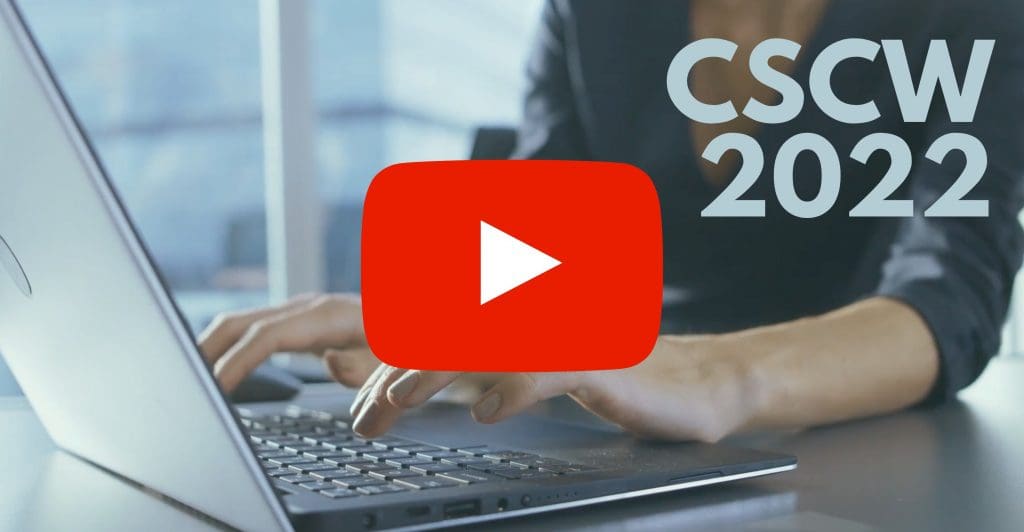The Digital Work Group focuses on the intersection of changes in work, information technologies, and new ways of organizing.
Our group’s research focuses on the roles and functions of information and communication technologies and the institutional contexts in which these systems are embedded. Our interest is to the ways in which the way work is organized is evolving as jobs become more project-based, as the roles of digital technologies expand from supporting workers to structuring work, and the ways in which working lives are increasingly informated.
Our multidisciplinary approach draws a range of methods and theories from organizational studies, sociology, science and technology studies (STS), labor economics, Computer-Supported Cooperative Work (CSCW), and others.
The Digital Work group involves undergraduate students, graduate students, and faculty from both Syracuse University’s iSchool and Skidmore College.
Check out our Medium blog, at: https://medium.com/digitalwork.
Research Areas
Featured Projects

This video explains how online workers’ identities are being reshaped, diminished and controlled by digital labor platforms. Learn more about our findings in our paper titled “Platform-mediated Markets, Online Freelance Workers and Deconstructed Identities” (forthcoming).

Find more information about one of our latest publications titled “Freelancing online during the COVID-19 pandemic” at Microsoft New Future of Work Symposium 2020.
Sawyer, S., Dunn, M., Munoz, I., Stephany, F., Raheja, R., Vaccaro, G., & Lehdonvirta, V. (2020). Freelancing online during the COVID-19 pandemic. Microsoft New Future of Work Symposium 2020.

Find more information about this work by reading our position paper titled “New futures of work or continued marginalization? The rise of online freelance work and digital platforms” at the ACM Digital Library.
Highlighted Publications
Munoz, I., Dunn, M., Sawyer, S., and Michaels, E. (2022). “Platform-mediated Markets, Online Freelance Workers and Deconstructed Identities.” Proc. ACM Hum.-Comput. Interact, 6, CSCW2, Article 367 (November 2022), https://doi.org/10.1145/3555092
Munoz I., Dunn M., Sawyer S. (2022). “Flexibility, Occupation and Gender: Insights from a Panel Study of Online Freelancers.” In: Smits M. (eds) Information for a Better World: Shaping the Global Future. iConference 2022. Lecture Notes in Computer Science, vol 13192. Springer, Cham. https://doi-org.libezproxy2.syr.edu/10.1007/978-3-030-96957-8_27
Sawyer, S., Carmel, E. (2022). “The multi-dimensional space of the futures of work.” Information Technology & People.
Dunn, M., Munoz, I., & Sawyer, S. (2021). Gender Differences and Lost Flexibility in Online Freelancing During the COVID-19 Pandemic. Frontiers in Sociology, 166.
Sawyer, S., Dunn, M., Munoz, I., Stephany, F., Raheja, R., Vaccaro, G., & Lehdonvirta, V. (2020). Freelancing online during the COVID-19 pandemic. Microsoft New Future of Work Symposium 2020.
Stephany, F., Dunn, M., Sawyer, S., & Lehdonvirta, V. (2020). Distancing Bonus Or Downscaling Loss? The Changing Livelihood of Us Online Workers in Times of COVID‐19. Tijdschrift voor economische en sociale geografie, 111(3), 561-573.
Dunn, M. (2020). Making gigs work: digital platforms, job quality and worker motivations. New Technology, Work and Employment, 35(2), 232-249.
Dunn, M., Stephany, F., Sawyer, S., Munoz, I., Raheja, R., Vaccaro, G., & Lehdonvirta, V. (2020). When Motivation Becomes Desperation: Online Freelancing During the COVID-19 Pandemic.
Jarrahi, M. H., Sutherland, W., Nelson, S. B., & Sawyer, S. (2020). Platformic management, boundary resources for gig work, and worker autonomy. Computer supported cooperative work (CSCW), 29(1), 153-189.
Jarrahi, M. H., & Sawyer, S. (2019). Networks of innovation: the sociotechnical assemblage of tabletop computing. Research Policy: X, 1, 100001.
Sawyer, S., Erickson, I., & Jarrahi, M. H. (2019). Infrastructural competence. digitalSTS: A Field Guide for Science & Technology Studies, 267.
Jarrahi, M. H., Philips, G., Sutherland, W., Sawyer, S., & Erickson, I. (2019). Personalization of knowledge, personal knowledge ecology, and digital nomadism. Journal of the Association for Information Science and Technology, 70(4), 313-324.
Dunn, M. (2017). Digital work: New opportunities or lost wages?. American Journal of Management, 17(4), 10-27.
Jarrahi, M. H., & Sawyer, S. (2017). More than nomadicity: The paradoxical affordances of liminality. International Reports on Socio-Informatics (IRSI), 14(3), 29-33.
Highlighted Conference Presentations
Sawyer, S., Munoz, I., and Dunn, M. (2022) “Upwork just did what? Studying digital platforms (or how to observe something that does not want to be observed),” Reimagining Platforms Symposium, 31 October, Edinburgh, Scotland, accepted.
Munoz, I., Dunn, M. and Sawyer, S. (2022) “Platform-mediated Markets, Online Freelance Workers and Deconstructed Identities,” ACM Conference on Computer-Supported Cooperative Work (CSCW), 12-16 November, Tapei, Taiwan, accepted.
Munoz, I., Sawyer, S. and Dunn, M. (2022) “New futures of work or continued marginalization? The rise of online freelance work and digital platforms,” CHIWORK, 8 June – 9 June, Durham, New Hampshire.
Munoz, I., Dunn, M. and Sawyer, S. (2022) “Flexibility, Occupation and Gender: Insights from a Panel Study of Online Freelancers,” iConference, 28 February – 4 March, online.
Dunn, M., Munoz, I., Sawyer, S., Vaccaro, G., Feldman, L., Michaels, E. (2021) “Connectedness, Activism and Dignity at work in a Precarious Era,” Presented at the British Sociological Association (BSA) Work, Employment and Society Conference, 25 -27 August, online.
Research Staff
Alumni
Rebecca Farrell, ’23, LinkedIn
Sofia Shore, LinkedIn
Bethanya Philipos ’22, LinkedIn
Brooke Stephenson ’22, LinkedIn
Gabby Vaccaro ’22, LinkedIn
Emily Michaels ’22, LinkedIn
Alaina Caruso ’21, LinkedIn
Bonnie Yu ’21, LinkedIn
Lily Moffly ’21, LinkedIn
Lily Feldman, LinkedIn
Raghav Raheja, LinkedIn
Haley Weller ’20, LinkedIn
Jean-Philippe Rancy, LinkedIn
Anjelica Torcivia ’18, LinkedIn
Emma Allen ’16, LinkedIn
Dr. Matt Willis, ’16 LinkedIn



 Melina Iavarone is a senior at Syracuse University majoring in psychology with a minor in political science. Melina joined the Digital Work Research Team in May of 2023. Currently, Melina is focused on the various ways in which Upworkers leverage social media platforms to aid them in their work and combat isolation.
Melina Iavarone is a senior at Syracuse University majoring in psychology with a minor in political science. Melina joined the Digital Work Research Team in May of 2023. Currently, Melina is focused on the various ways in which Upworkers leverage social media platforms to aid them in their work and combat isolation.





